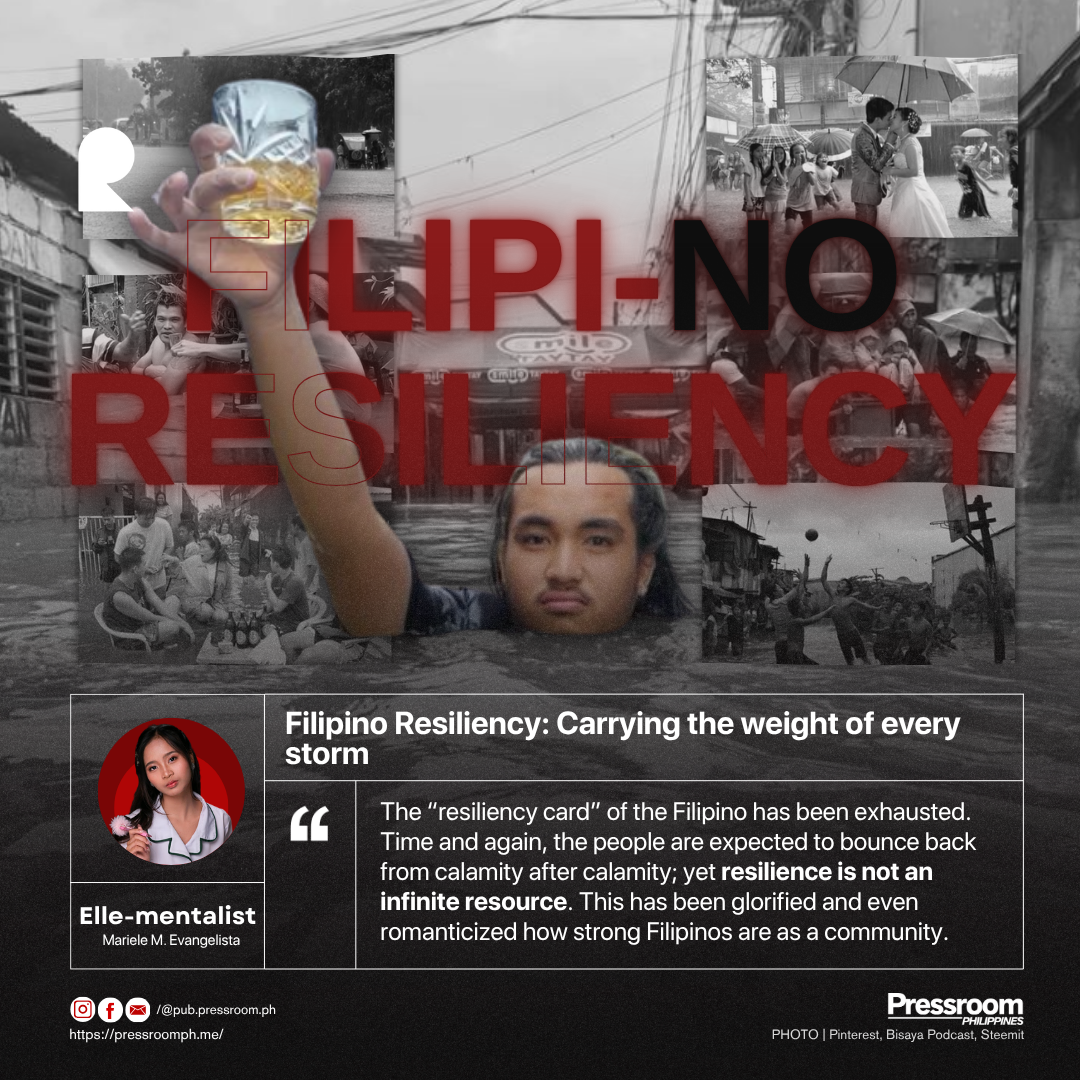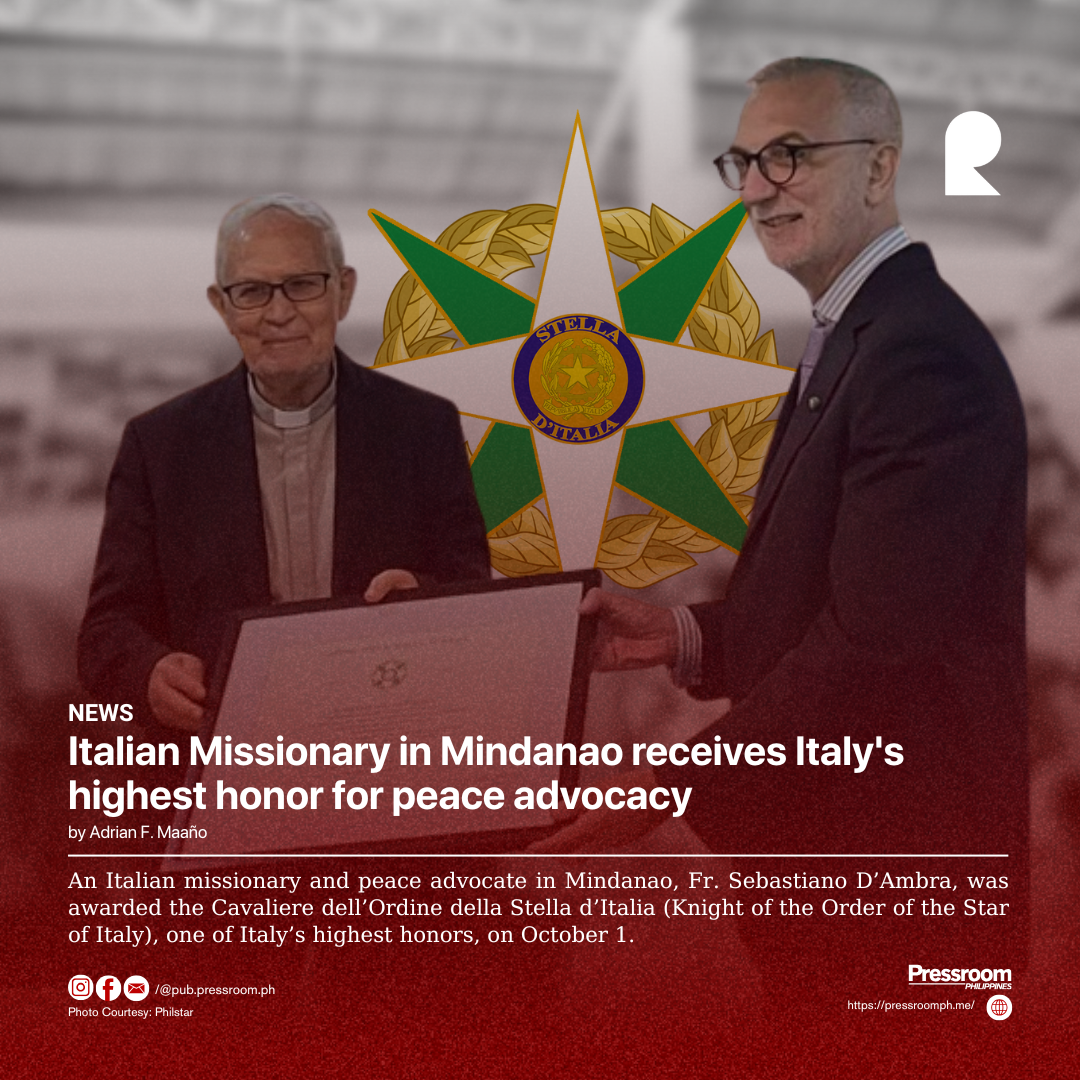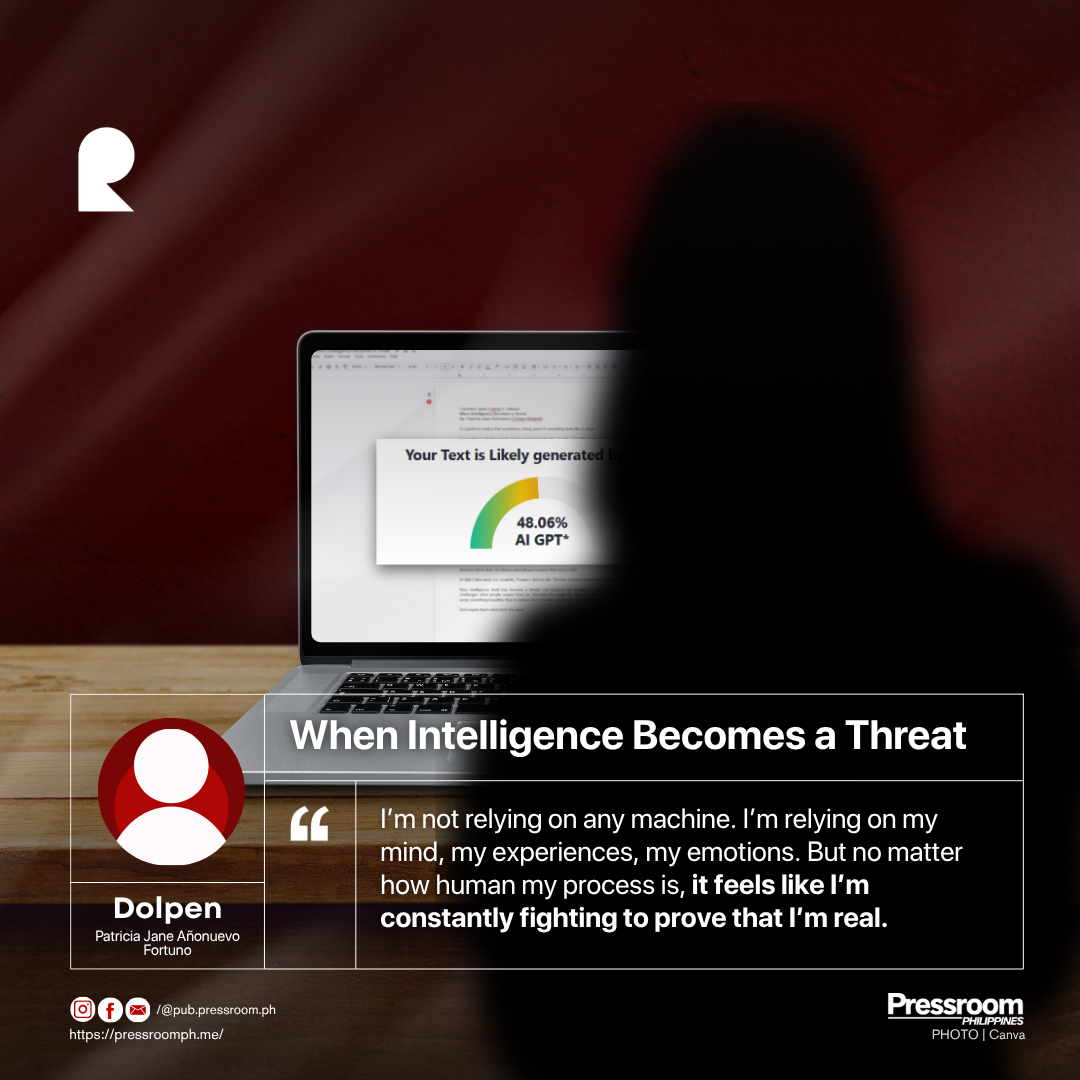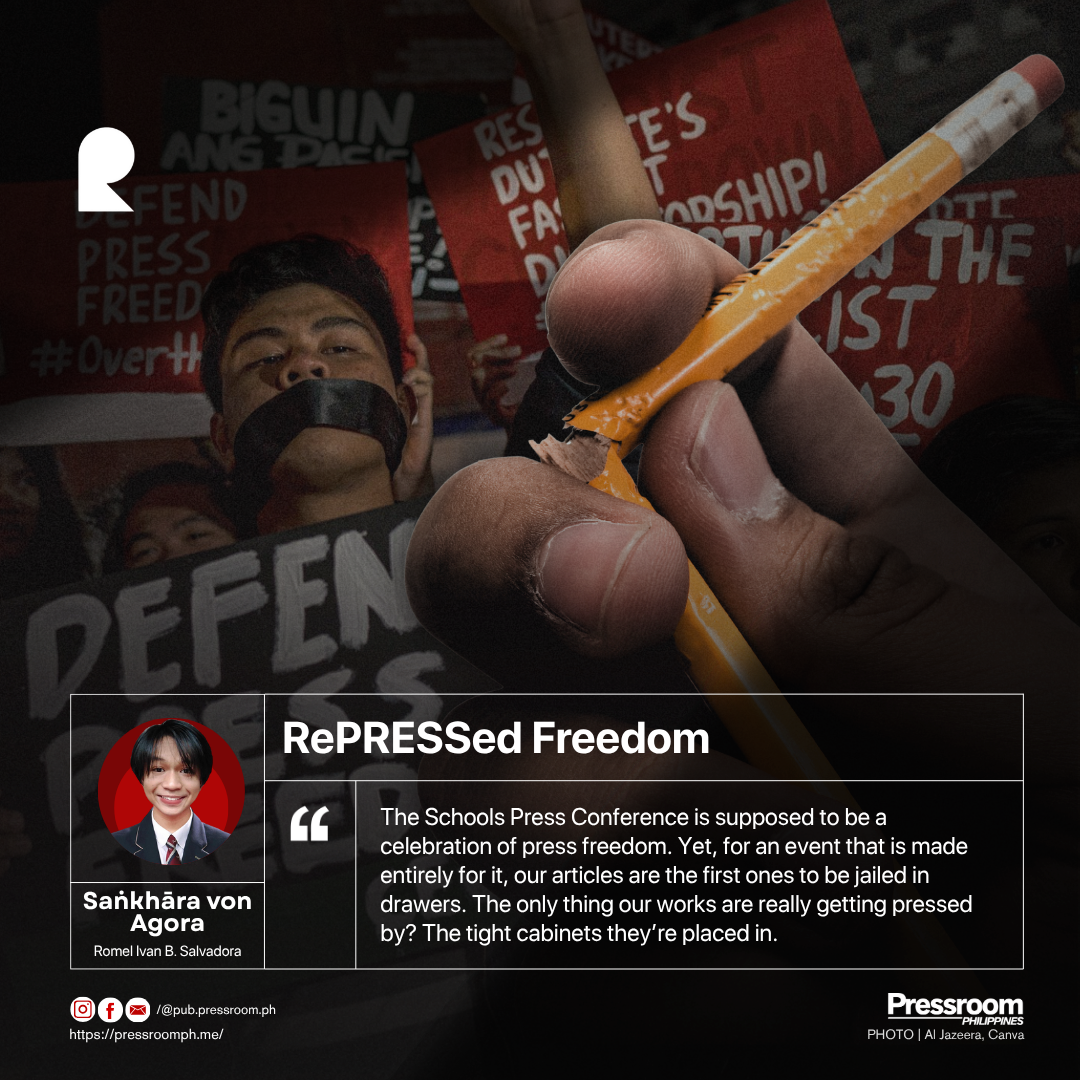via Mariele M. Evangelista
The “resiliency card” of the Filipino has been exhausted. Time and again, the people are expected to bounce back from calamity after calamity; yet resilience is not an infinite resource. This has been glorified and even romanticized how strong Filipinos are as a community.
People have been challenged by one calamity after another; both natural and man-made. Typhoons, floods, and earthquakes continue to test them, yet the greater tragedy lies not in nature but in the lack of preparation. How many lives could have been spared if flood control projects were consistent and transparent? How many homes could have been saved if infrastructure were properly planned and executed? These issues may sound repetitive, but that is exactly why they must be. They must be redundant. They must be persistent. As to why these failures repeat precisely all because they have never been fully addressed.
Meanwhile, instability continues to plague governance. Heads of agencies resign, political alliances shift, and the focus on accountability fades amid power struggles. While leaders play musical chairs, ordinary Filipinos suffer the consequences—higher prices, weaker systems, and slower responses to crises. In the end, the people are expected to “adjust” and “understand” once again. But how long must understanding replace accountability? How long must citizens bear the burden of others’ incompetence and call it resilience?
The risk of losing resilience is far greater than many realize. It is not just about fatigue, rather it is about losing faith. When people begin to feel that their efforts, taxes, and sacrifices are in vain, they lose the will to stay, to serve, to believe. This is where the issue of brain drain connects: when the brightest minds leave the country because they no longer see hope in staying, it is not just talent the society loses, but the very soul of the nation. Resilience without reform becomes surrender.
Filipinos deserve more than admiration for surviving, they deserve systems that allow them to thrive. They cannot keep applauding themselves for enduring pain while those in power escape responsibility. The next time a calamity strikes, the community should not only ask, “kaya pa ba natin?” but rather “bakit kailangan pa nating kayanin nang ganito?” Real strength is not in enduring the same failures, it is in demanding that they end.
True Filipino resiliency does not mean saying “kaya pa.” It means saying “sobra na.” It means reclaiming the accountability that has long been drowned in floods, buried under rubble, and lost in political noise. To be resilient should not mean to endure endlessly, it should mean to rise, and to never let it happen again.






